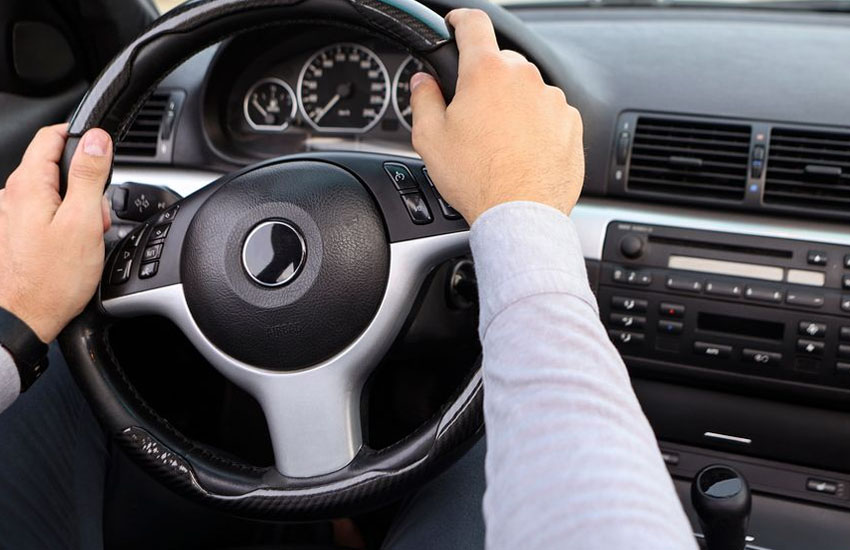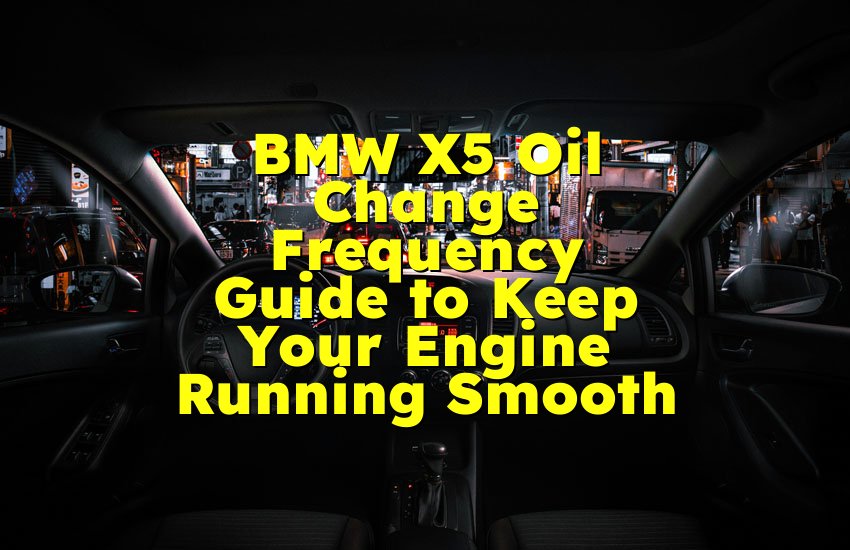As an Amazon Associate, I earn from qualifying purchases at no extra cost to you.
Why Does My Car Start Sometimes and Sometimes It Doesn’t? A Complete Guide
Ever been in a rush, ready to head out the door, only to find that your car decides to play a game of "will it start today?" If this sounds familiar, you’re not alone. Whether it’s a tricky electrical glitch, an issue with your fuel system, or a mechanical problem, there are a number of reasons why your car might start one day and not the next. Let's dive into what could be causing the issue and what you can do about it!

Understanding the Problem: What Could Be Wrong with My Car?
When your car starts only intermittently, it's easy to feel frustrated. After all, you depend on it daily, and having it not start when you need it most is a headache. There are a variety of reasons why this might happen. Some are simple and easy to fix, while others may require a bit more investigation and time. It's important to stay calm and understand that it's not the end of the world, and most of the time, the problem can be resolved with a little troubleshooting. Let's break down the top causes for why your car might not start consistently.
1. Dead or Weak Battery: The Classic Culprit
One of the most common reasons cars don't start intermittently is a weak or dead battery. You may be familiar with the feeling of turning the key and hearing the click-click-click of the engine not turning over. This happens when your battery doesn't have enough charge to power the engine’s starter motor.
Batteries have a lifespan, typically around 3 to 5 years, and over time, they lose their ability to hold a charge. So, if your car starts one day and not the next, it could simply be that the battery is not getting enough juice. You might be able to get it started if you jump-start it, but the issue will likely come back if the battery is on its last legs.
Here's how you can troubleshoot this issue:
- Check the battery terminals: Sometimes, the problem isn't with the battery itself but with the connection. If the terminals are corroded or loose, it can prevent the car from starting properly. Tighten any loose connections, and use a wire brush to clean off any corrosion.
- Test the battery charge: If you have a multimeter, you can test the voltage of the battery. A healthy, fully charged battery should read around 12.6 volts or more when the car is off. If the reading is below 12 volts, it's time to replace the battery.
- Try jump-starting the car: If your battery is low on charge, jump-starting the car could be a quick fix. If the car starts right up, it's a strong sign that the battery is the issue.
- Get a load test: Even if the battery voltage is fine, it might still be too weak to start the car under load. Many auto parts stores will offer a free battery test to see if it's holding a charge properly.
If your battery fails any of these tests, replacing it is likely the best solution.
2. Faulty Starter Motor: The Heart of Your Car's Ignition
Another reason for intermittent starting problems is a faulty starter motor. The starter motor is responsible for turning over the engine and getting it running. If the starter motor is malfunctioning, you might notice that the car starts sometimes, but other times, it doesn't respond when you turn the key.
There are a few signs that your starter motor might be the problem:
- Clicking sound: If you hear a clicking noise but the engine doesn't turn over, it could be a sign that the starter motor is trying to engage but is failing to do so.
- Grinding noise: If you hear a grinding sound when starting the car, it could be that the starter gear is not fully engaging with the engine, which can wear out the flywheel over time.
- Car struggles to start: Sometimes, the starter motor will work intermittently, meaning the car might start perfectly fine on one day, but the next day it won't turn over at all.
If you suspect that the starter motor is the culprit, you can try tapping it gently with a hammer or wrench while someone else tries to start the car. Sometimes this will get the motor moving again if it's just stuck. However, if it doesn't work, the starter motor will need to be replaced, which is typically a job for a mechanic.
3. Fuel System Problems: Running Out of Gas or Fuel Pump Issues
Believe it or not, a car that won't start could be a result of problems with the fuel system. This is especially true if the car starts up fine occasionally but has difficulty starting at other times. The fuel system is responsible for getting the right amount of fuel to the engine to power the vehicle. If there's an issue with the fuel pump, fuel filter, or even just low fuel levels, it could cause intermittent starting problems.
Here's how to check for fuel system issues:
- Check the fuel gauge: While this sounds obvious, sometimes a simple low fuel level is the reason why your car won't start. If you have enough gas but still face issues, keep reading for more specific problems.
- Listen for the fuel pump: When you turn the key to the "on" position (without starting the engine), you should hear a faint humming sound from the fuel pump in the tank. If you don't hear this sound, the fuel pump may not be working properly.
- Inspect the fuel filter: Over time, fuel filters can become clogged with debris, causing fuel to flow less freely into the engine. If the fuel filter is clogged, it can result in difficult starting or a no-start condition.
- Fuel injectors: Dirty or clogged fuel injectors can also cause issues with starting. Fuel injectors are responsible for spraying fuel into the engine, and if they aren't working properly, the engine may not get the right amount of fuel to start.
If you suspect that the fuel system is the problem, it's best to have a mechanic inspect and clean the fuel injectors, replace the fuel filter, or replace the fuel pump if necessary.
4. Ignition System Issues: Faulty Spark Plugs and Ignition Coils
The ignition system is what gets the engine firing once it has fuel and air. If there's an issue with any component in the ignition system, like the spark plugs or ignition coils, your car may have trouble starting.
Here's what to look for if you think the ignition system could be the issue:
- Old spark plugs: Spark plugs wear out over time, and once they're too old or damaged, they can't ignite the fuel-air mixture properly, causing starting issues. If the spark plugs are cracked or dirty, they may need to be replaced.
- Faulty ignition coils: Ignition coils convert the electrical power from the battery into a spark that ignites the fuel. If the ignition coil is malfunctioning, the car may have trouble starting, especially in colder weather. You might notice the car hesitating or misfiring, especially on startup.
If you've checked the battery and fuel system and the car is still struggling to start, have your ignition system checked by a mechanic.
5. Electrical Issues: Loose Connections or Broken Fuses
Electrical problems, such as a loose connection or a blown fuse, can cause your car to start intermittently. These issues are more difficult to diagnose on your own, but if you've ruled out the more common causes like the battery or starter motor, electrical problems could be the next thing to investigate.
Here's what to look out for:
- Loose or corroded connections: Check the battery cables and connections, including the ground wires. A loose or corroded connection can prevent power from reaching the starter motor or ignition system.
- Blown fuses: A blown fuse in the starter circuit or ignition system can prevent the car from starting. Check the car's fuse box to ensure all the fuses are intact.
6. Security System: Immobilizer or Anti-Theft System Malfunctions
If your car's anti-theft or immobilizer system is malfunctioning, it may prevent your car from starting properly. Modern cars often have security systems that prevent unauthorized starting, and if something goes wrong, your car may refuse to start even if the battery and other systems are fine.
I hope this helps you eliminate those pesky starting problems in your car! Whether it's a simple battery issue or something more complex, there are many potential reasons why your car might start intermittently. With a little bit of troubleshooting and the right knowledge, you'll be able to pinpoint the issue and get back on the road in no time!
Are These Questions in Your Mind?
Is it the battery if the car starts sometimes but not always?
Yes, a weak or failing battery is one of the most common causes of intermittent starting issues. Check the voltage and test the battery to see if it’s the culprit.
Can a faulty starter motor cause intermittent starting problems?
Yes, a faulty starter motor can prevent your car from starting intermittently. A clicking or grinding noise when starting is often a sign of a bad starter.
Do I need to replace my battery every time my car has trouble starting?
Not necessarily. If your battery is old or the voltage is low, it may need to be replaced. However, check other components first before deciding to replace it.
Is it expensive to replace the starter motor?
Replacing a starter motor can be moderately expensive, depending on the make and model of your car. It's worth getting a quote from a mechanic.
Can low fuel cause my car not to start?
Yes, running low on fuel or having a clogged fuel filter can cause your car to fail to start. Always check the fuel gauge and ensure your filter is clean.
Is the ignition system causing my car to not start?
It's possible. Faulty spark plugs or ignition coils can cause intermittent starting problems. Have the system inspected if other solutions don't work.
Can electrical issues cause starting problems?
Yes, electrical issues such as loose connections or blown fuses can prevent your car from starting. It's worth checking these components if other options don't solve the issue.
Do I need to worry if my car starts intermittently?
It's important to address the issue sooner rather than later. Ignoring intermittent starting problems can lead to bigger issues down the line.
Is it possible to fix the starting problem on my own?
Some problems, like a dead battery or a loose connection, can be fixed with basic tools. However, more complex issues like a faulty starter motor or fuel system problems may require professional help.
Can the weather affect my car's starting?
Yes, extreme cold or hot weather can impact the performance of your battery and fuel system, making it harder for the car to start.











